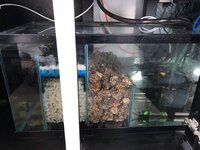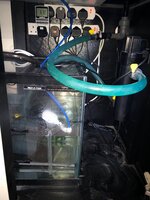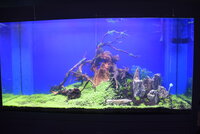Thanks Ian, I'll get a KH test done as it's a new house but only a few miles away from my previous so should be the same water, I'll also look to increase the water change although not sure if 50% is possible.If you have soft water why are you using RO ? Many people would die to have soft water where you can harden it up to your requirements (4-8dKH). My water is very hard, having come from a chalk aquifer and plants grow monstrously, fish reproduce like rabbits with what comes out my tap.
If going high tech, you will need at least 50% weekly water changes to remove waste organics. If left the organics build up quickly and algae quickly follows. If I miss a water change it is pretty obvious due to BBA appearing as well as green spot algae within a couple of days.
With a booster pump, how is it controlled? I'm trying to be as automated as possible, so if it's a manual exercise it won't fit with my plans, if it can detect pressure and will boost when the float valve opens, then it has a chance.
I do have an 11W UV on the system, which I'd hope will assist with algae spores???


 Especially I understand the elements that the plants need more now, so it's looking like a switch in strategy now, auto top up from the mains and buffer the tank up. Spare RO for sale
Especially I understand the elements that the plants need more now, so it's looking like a switch in strategy now, auto top up from the mains and buffer the tank up. Spare RO for sale 



